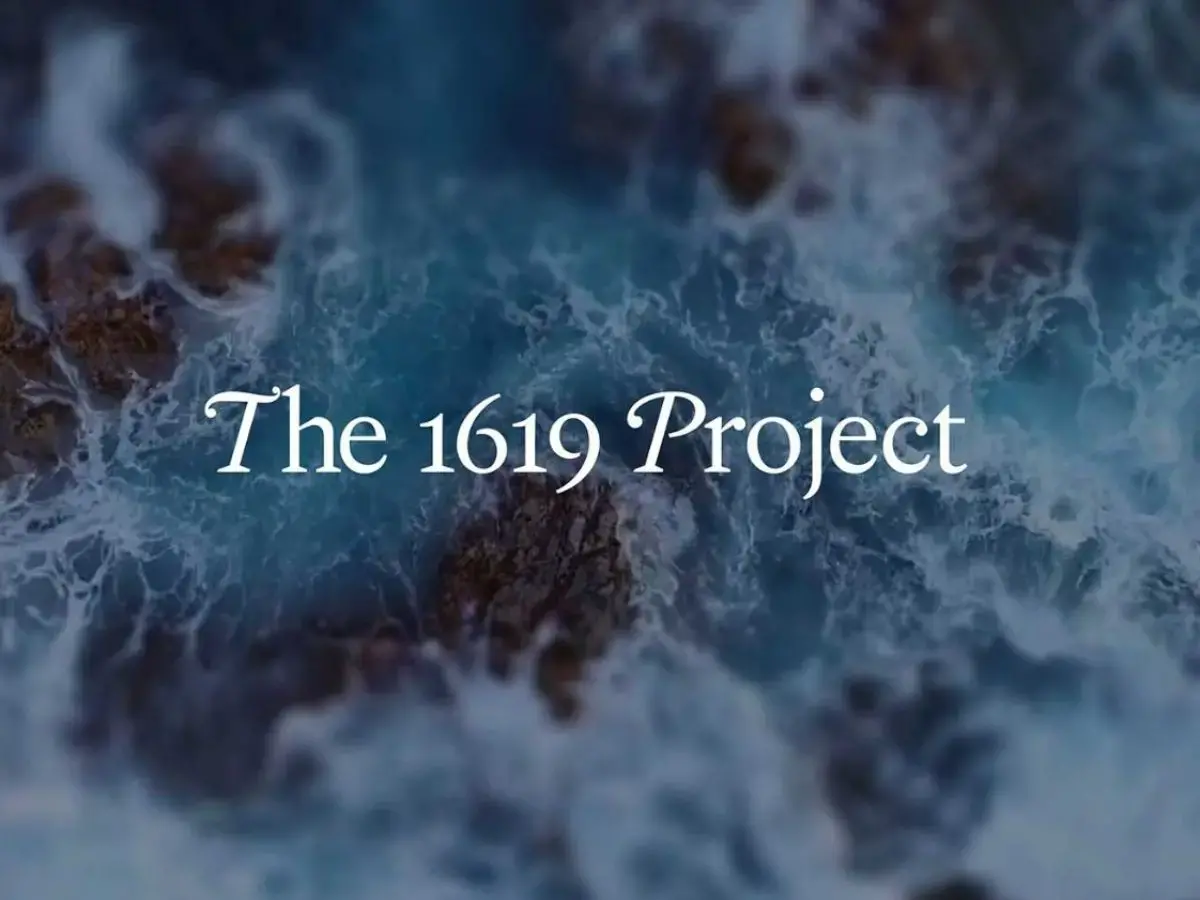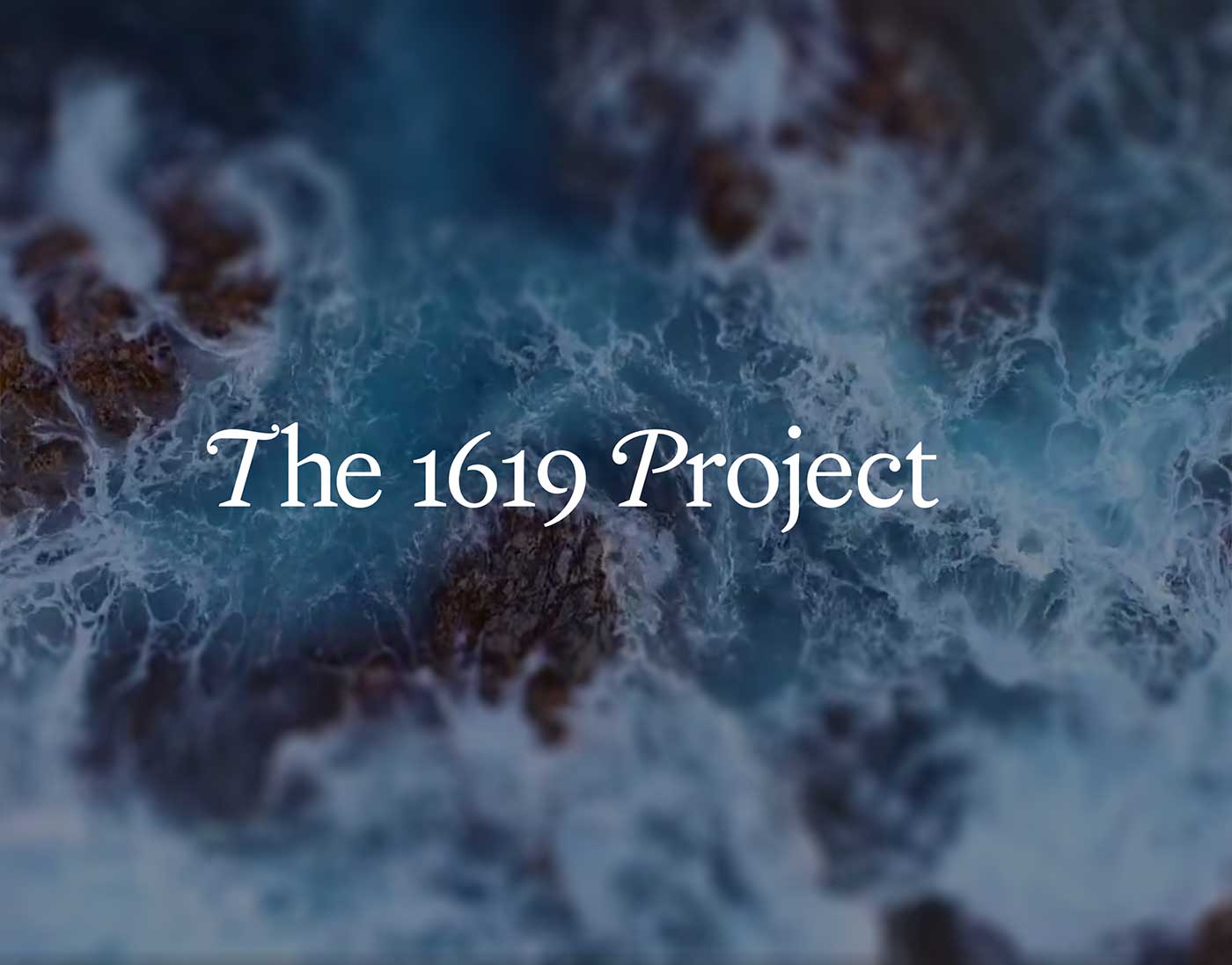
New Docuseries and Education Conference Engage Deeply With The 1619 Project
“I want to learn the history that wasn't taught in school when I was growing up.”
We hear this often from the many people who have engaged with themes of The 1619 Project through the Pulitzer Center’s education programs.
As the education partner of The 1619 Project, the Pulitzer Center developed curricular resources for the original essays, published in a special issue of The New York Times Magazine in 2019. Since then, project creator and Pulitzer Prize-winning journalist Nikole Hannah-Jones and project contributors, artists, and historians have expanded their work through a podcast, an anthology, an illustrated children’s book, and now a new documentary series streaming on Hulu.
Our 1619 Education Network and resources have grown alongside the project. Now concluding its second cohort, the Network engages 329 educators across 28 states and Washington, D.C., with teaching hard history and culturally relevant pedagogy, by providing them with the resources to support their students in understanding the role of Black people in shaping American society and the legacies of slavery that still exist today.
The new, six-part docuseries continues The 1619 Project’s work of placing the consequences of slavery and the contributions of Black Americans at the very center of our national narrative. Each episode of the series calls on historians, journalists, and community leaders to share their insight and expertise on the enduring legacy of slavery and its impact on our current society.
The latest docuseries viewing guides from the Pulitzer Center Education team support educators and families in processing, discussing, and wondering about the first two episodes: “Democracy” and “Race.”
While the viewing guides are geared toward educators, they are relevant for anyone currently watching and contemplating the 1619 docuseries. Viewing guides for the remaining four episodes—“Music,” “Capitalism,” “Fear,” and “Justice”—will be made available on 1619education.org as episodes are released in the coming weeks.
We invite those interested in engaging more deeply with the project’s themes to attend our two-day, virtual 1619 Education Conference taking place on February 18 and 19. The conference will feature keynote speakers Hannah-Jones and Ibram X. Kendi, alongside project contributors and 1619 Network educators.
Our resources at the Pulitzer Center are designed to support students in engaging with underreported stories. This means examining the root causes and underlying systems that give rise to today’s crises. As Hannah-Jones said at last week’s premiere of “Democracy”: “It takes a great deal of courage right now to teach the truth to our kids.”
Best,


IMPACT
Findings from the Pulitzer Center-supported project Tracked have influenced the U.S. Department of Justice to scrutinize a welfare algorithm used by a Pittsburgh-area child protective services agency, following concerns that it can discriminate against families with disabilities.
The AP series revealed potential bias and transparency issues surrounding the increasing use of algorithms within the American welfare system. Critics worry that the reliance of these tools on historical data risks furthering existing inequalities.
According to anonymous sources of the AP, attorneys at the Justice Department’s Civil Rights Division cited content from the AP investigation when urging them to submit formal complaints.
Amid the debate over the moral consequences of integrating artificial intelligence programs into child protective services and other social programs, the Justice Department’s interest in the Allegheny algorithm shows significant progress toward possible legal implications of using AI tools.
HIRING OPPORTUNITIES
This message first appeared in the February 3, 2023, edition of the Pulitzer Center's weekly newsletter. Subscribe today.
Click here to read the full newsletter.





